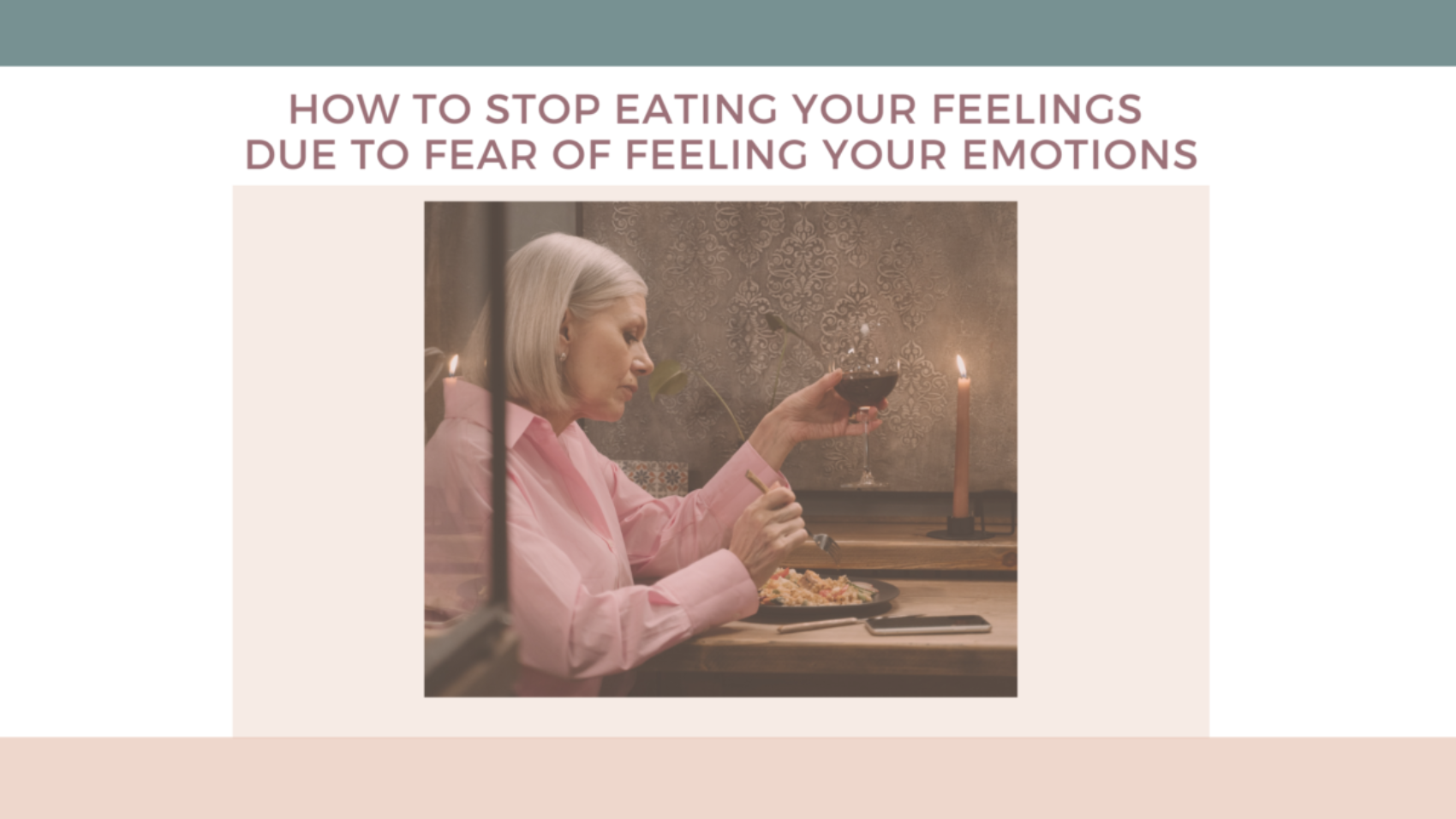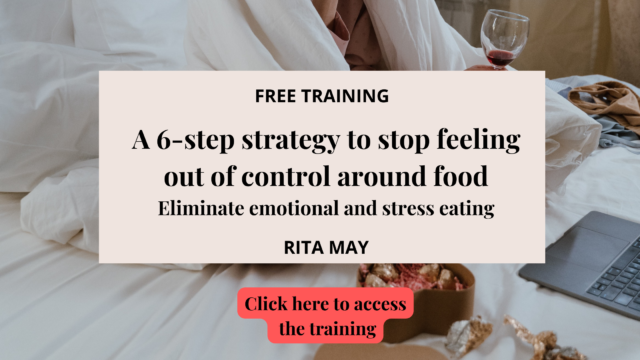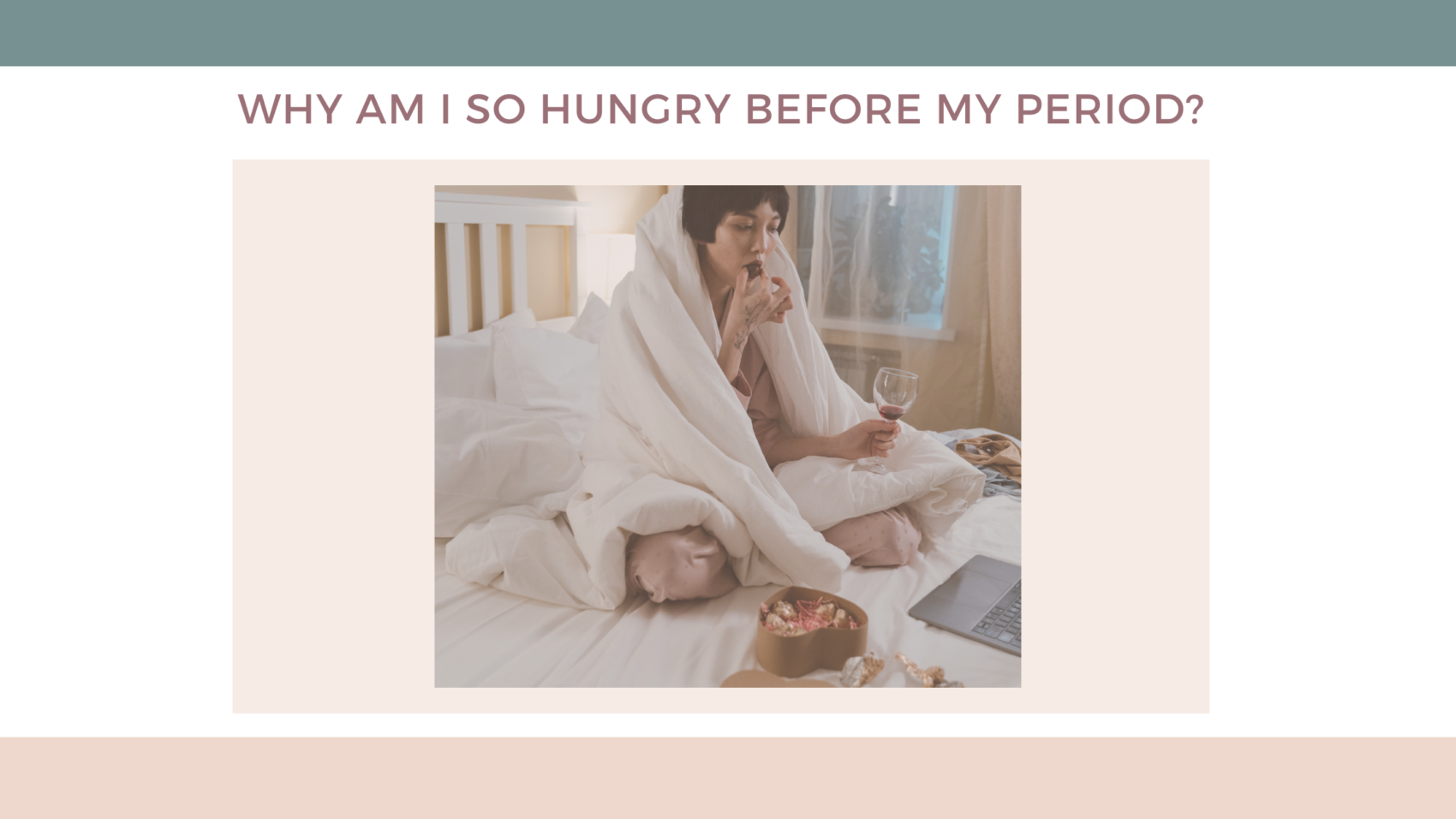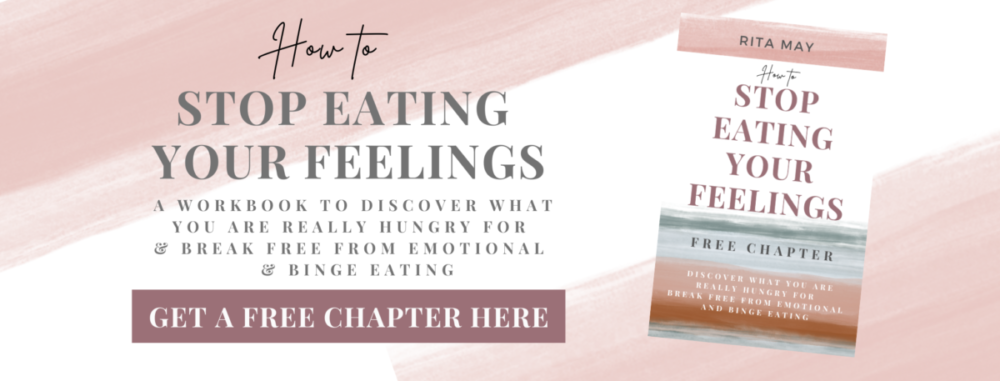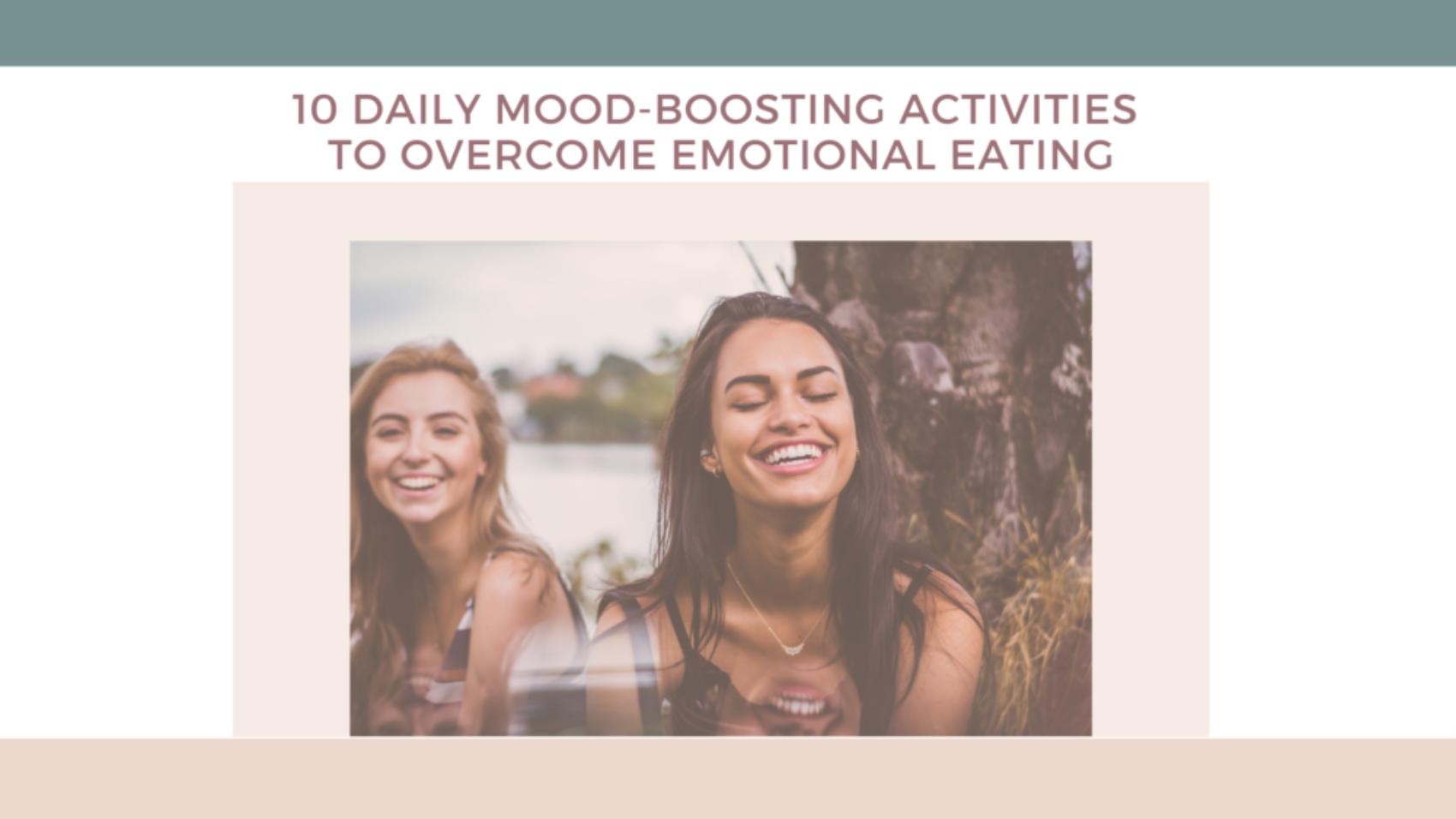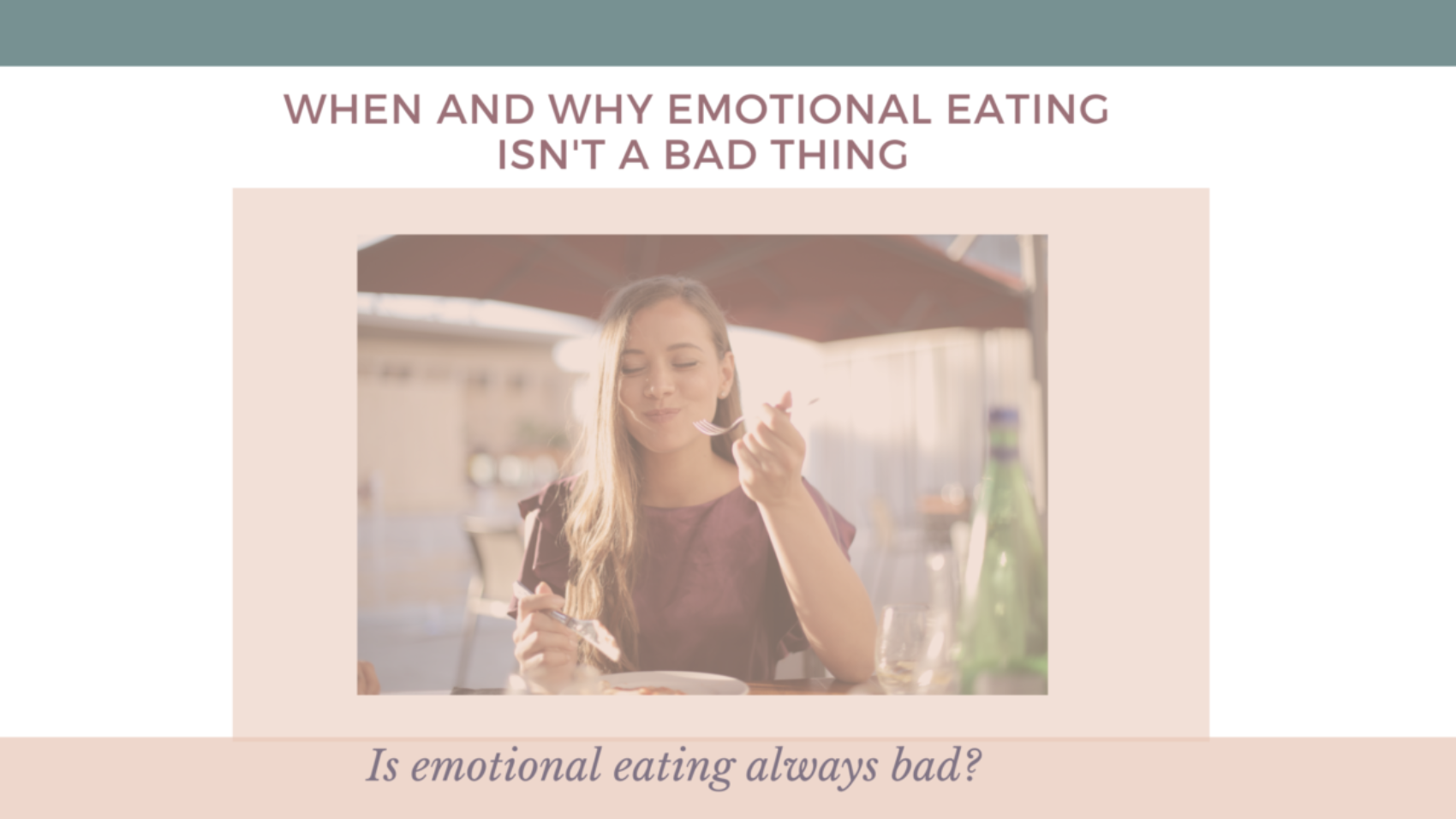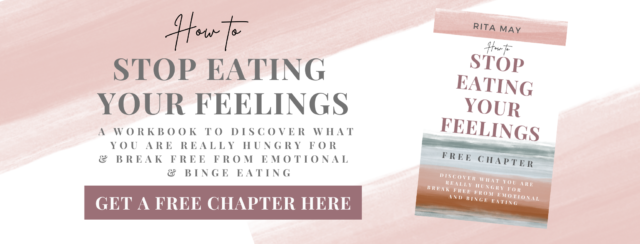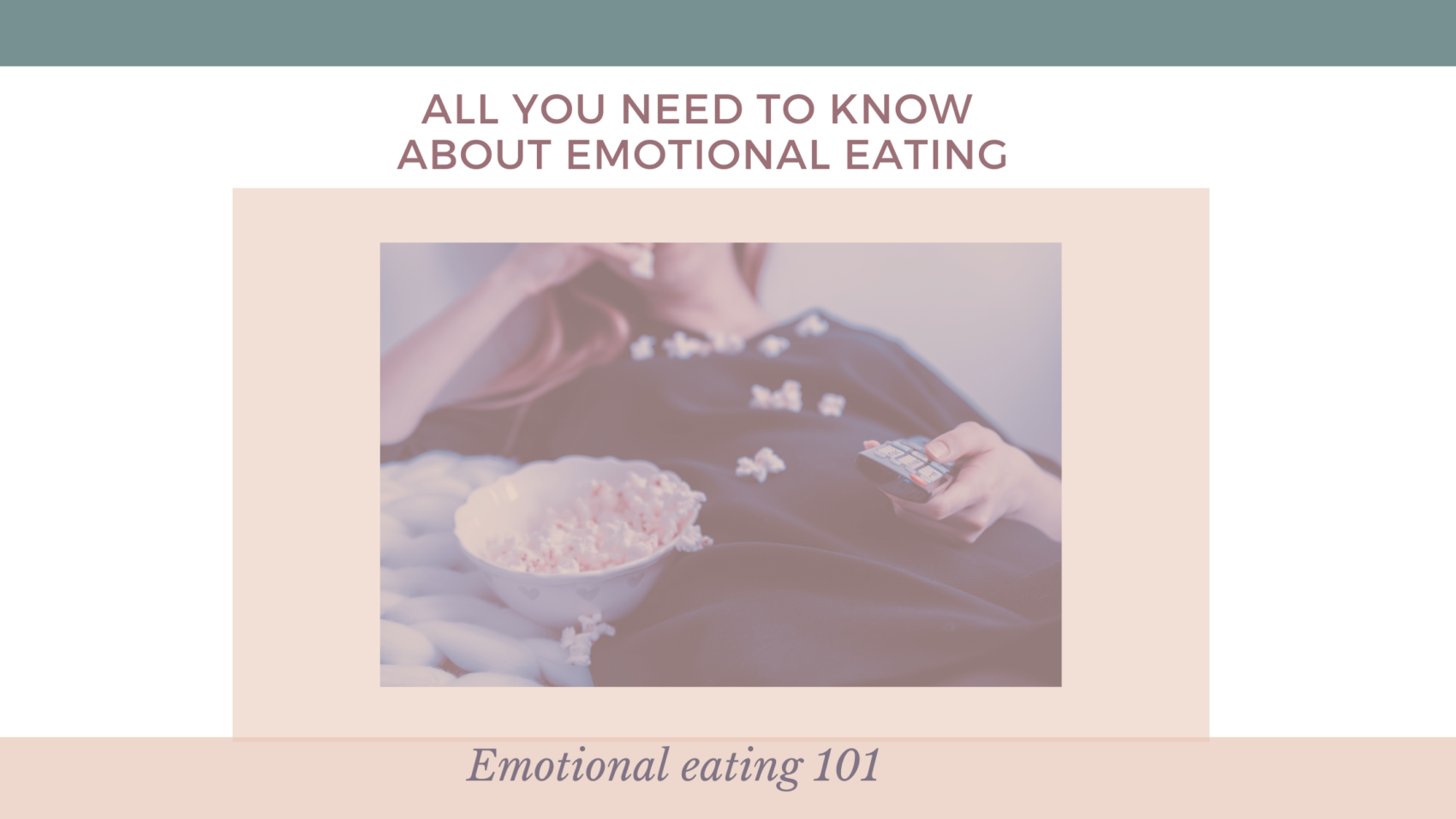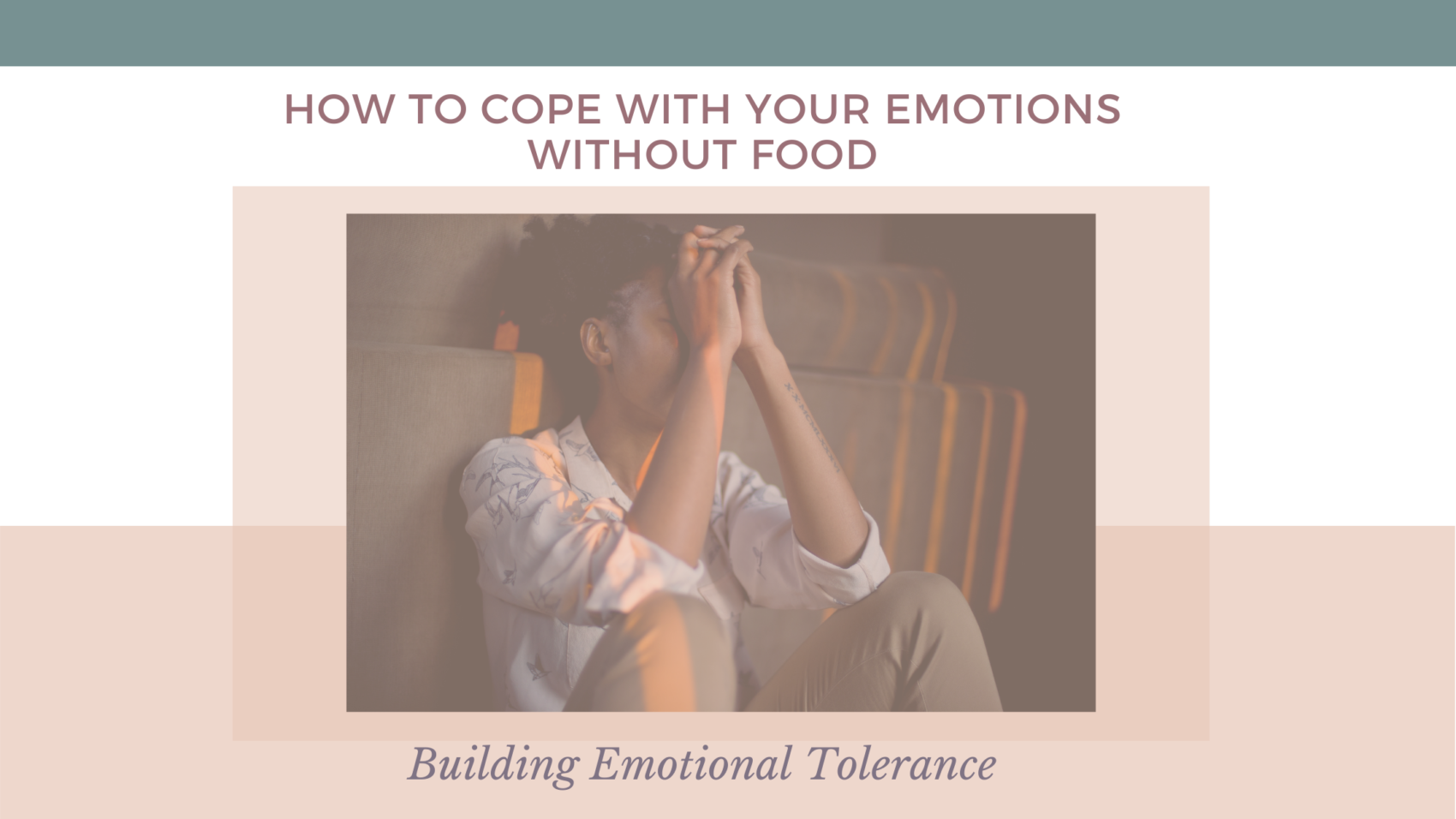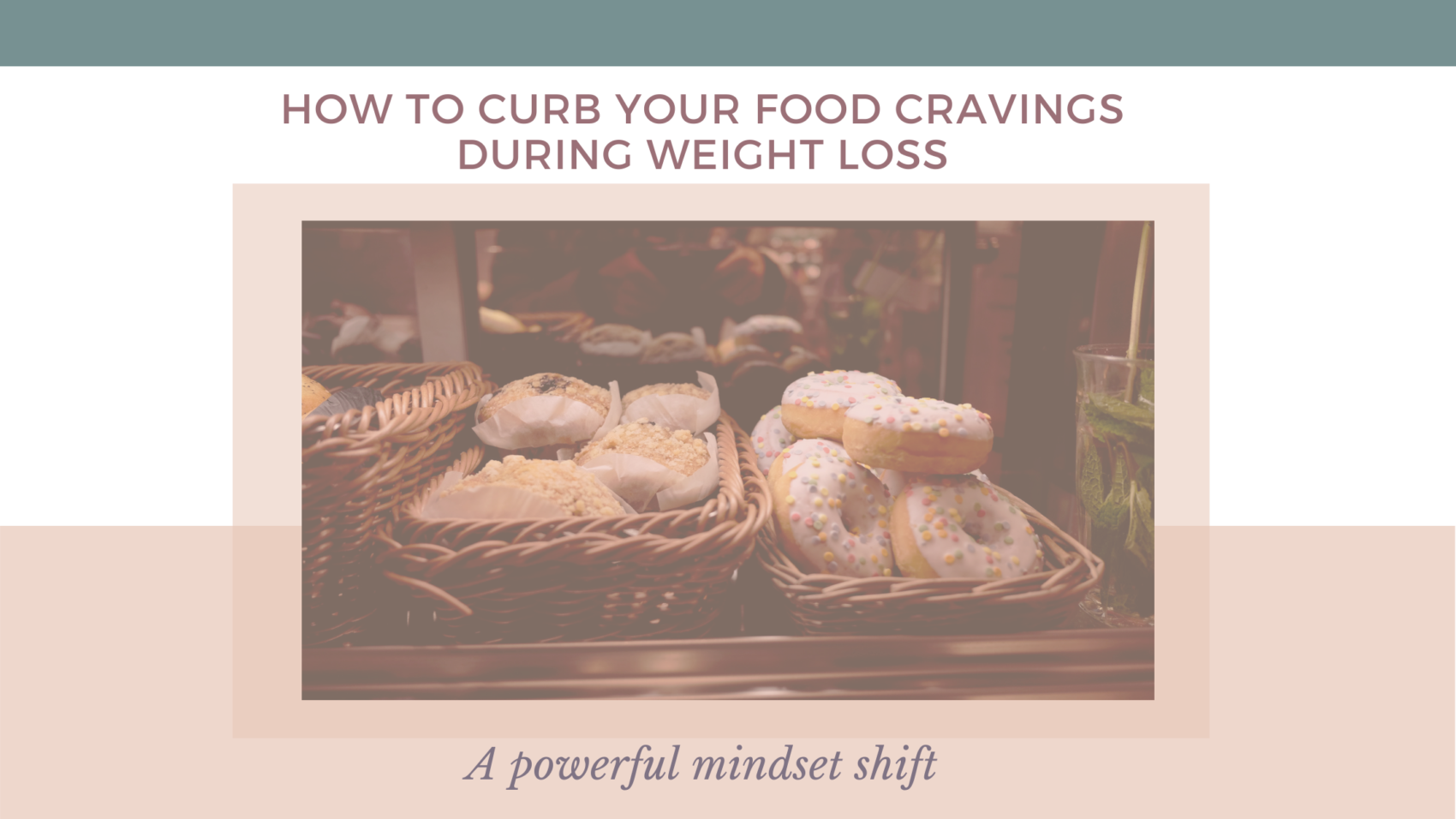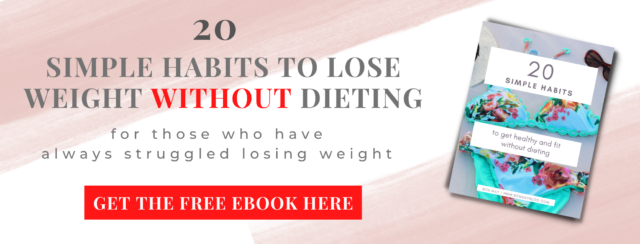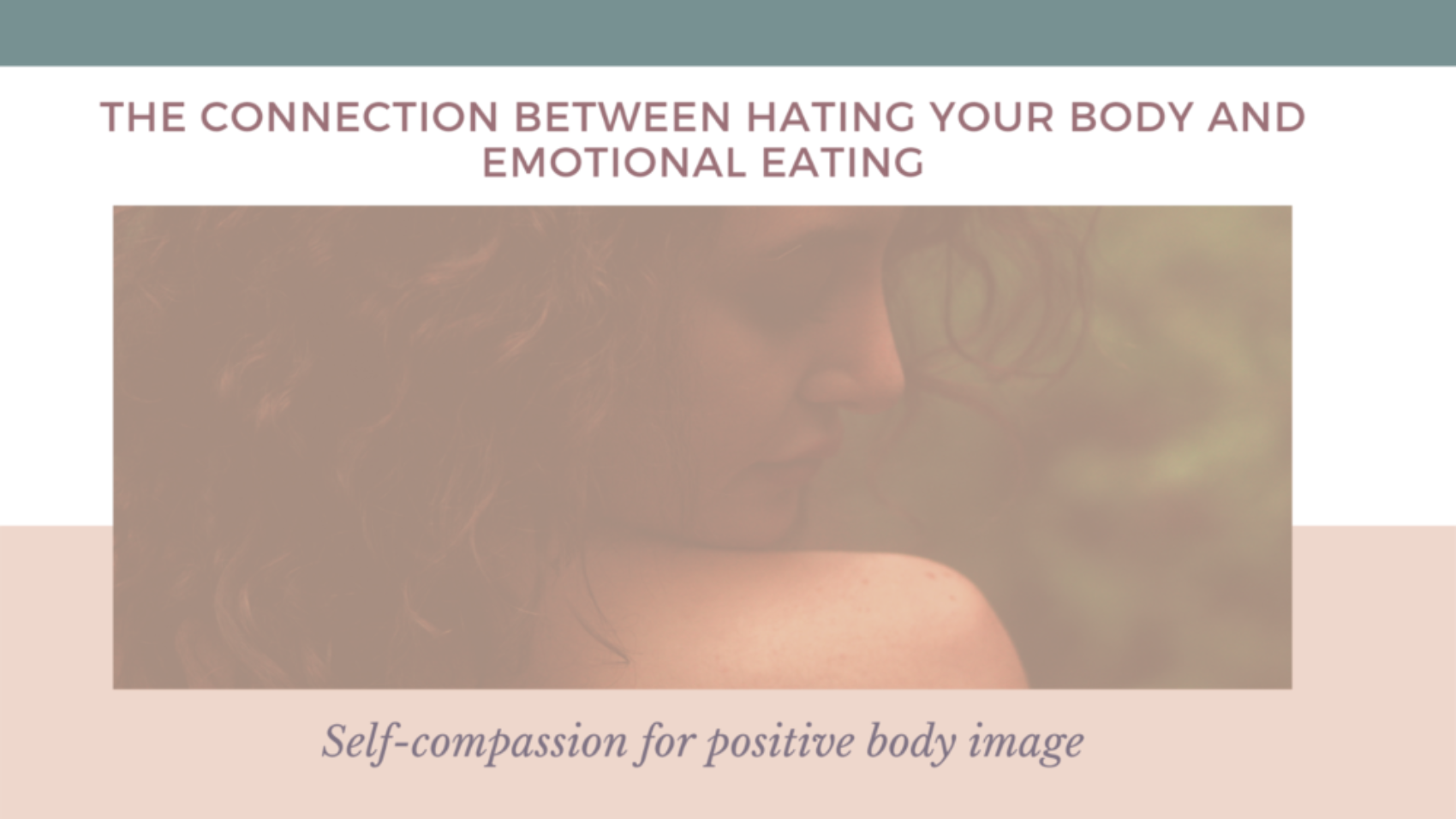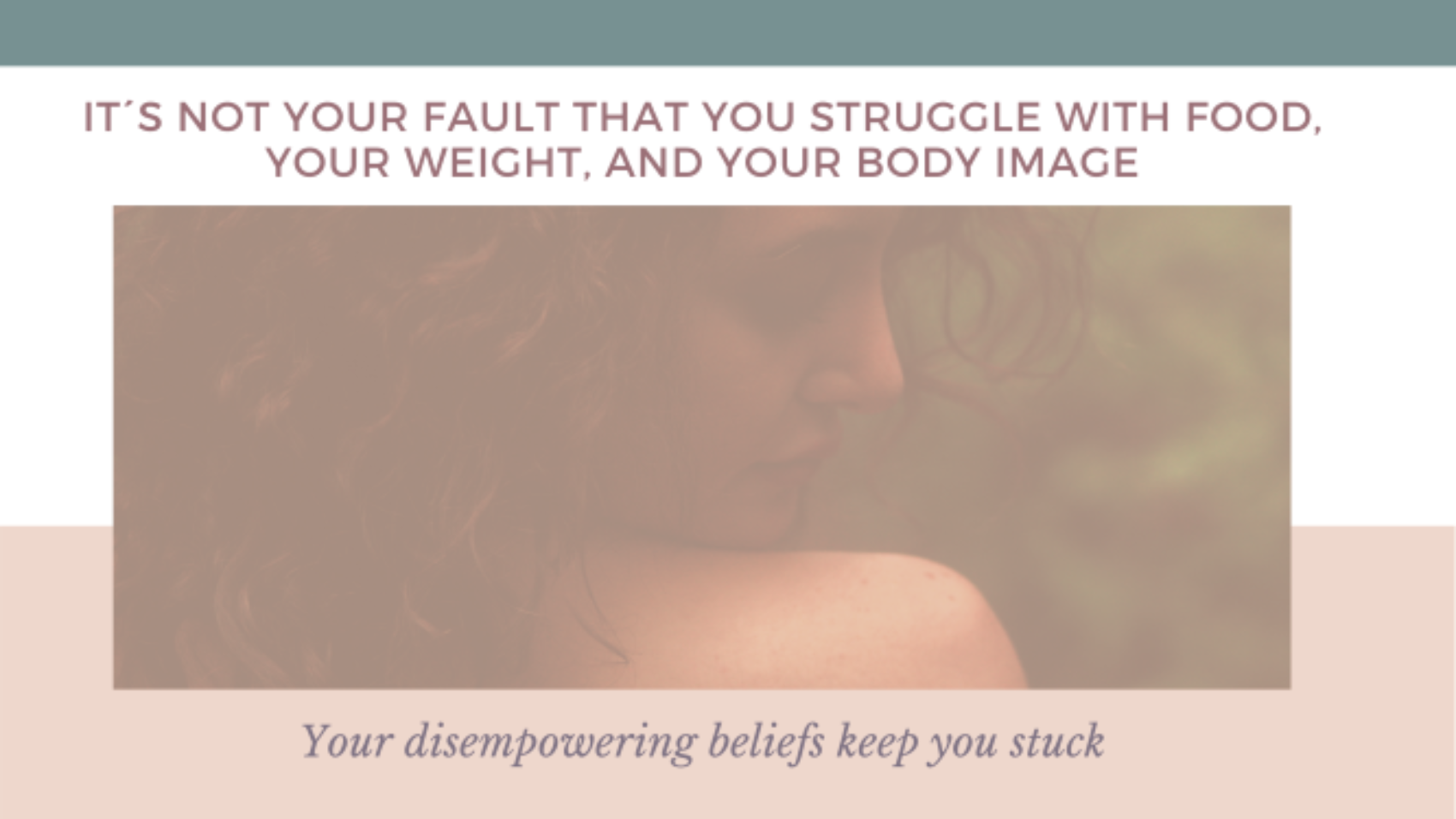Are you afraid to feel your emotions so you eat to numb them?
Do you want to know how to stop eating your feelings? Keep reading.
For many people, expressing difficult emotions or admitting they have “negative” feelings like sadness or anger feel difficult or even impossible. Most people, understandably, don’t want to feel anxious or hurt, or upset. So they choose to ignore or suppress these feelings. They numb their feelings with food, or distract themselves with the neverending cycle of overeating and restricting.
And the most significant reason they do this is because they’re afraid to feel their emotions.
In this post, I’ll discuss why we fear our uncomfortable emotions and how to learn to embrace our feelings. This will help you stop eating your feelings and have a better relationship with food.

